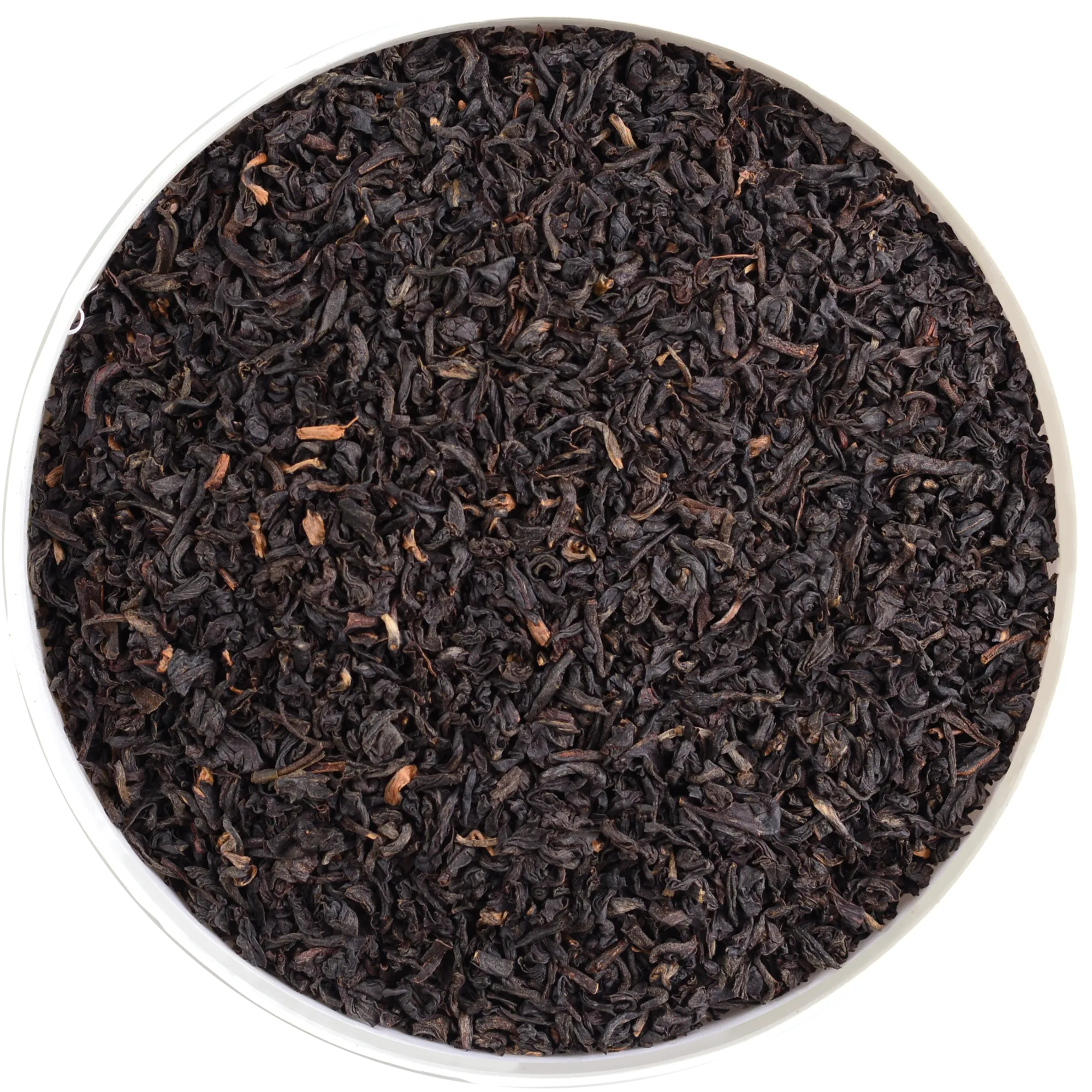How is Black Tea made?
When it comes to black tea, the magic starts with the Camellia Sinensis tea plant. Once the tea is harvested, it undergoes fermentation, which brings out the tea's distinct black colour and characteristic flavour. Black tea is made through a series of carefully orchestrated steps. The process starts with plucking the top two leaves and the bud from the tea plant, Camellia Sinensis. These leaves are sorted and cleaned, and then left to wither in a cool, dry room for up to 18 hours. During this time, the leaves lose moisture, become softer, and release some of their flavour compounds. Next, the withered leaves are rolled to break down their cell walls and release more flavour compounds. Rolling also helps to distribute the natural juices and enzymes within the leaves, which will help with oxidation later on. After rolling, the leaves are left to oxidise and fully fermented. This is a crucial step that gives black tea its distinctive flavour and colour. Oxidation is achieved by exposing the leaves to air, allowing them to react with oxygen. The level of oxidation depends on the desired final product. During fermentation, the leaves will darken and develop more robust flavours. The process can take anywhere from a few hours to a whole day, depending on the tea type and the ambient temperature and humidity. Once the desired level is reached, the leaves are heated to make them dry and stop the process. Finally, the leaves are sorted and graded according to their size, shape, and quality. The grading system varies from country to country, but generally, the smaller, whole leaves are considered the highest quality, while the broken leaves and fannings are used in lower-grade teas and tea bags. At Dilmah, the tea-making process is steeped in tradition, with experienced tea pickers carefully selecting the top two leaves and buds of the tea plant. And not only are the tea pickers fairly compensated and work normal working hours, but the production process also supports the environment and the community at large.
Drinking Black Tea
At Dilmah, we recommend brewing black tea with water between 95-100 degrees, and to not let the tea steep for more than 5 minutes, to avoid over-brewing the tea, which makes it bitter.Black tea also has some health benefits. It contains thiamine and folate, which are components of vitamin B. By drinking three cups of tea a day, you can get about 5% of the daily recommended amount of these vitamins. Manganese is the most dominant mineral present in tea, and by drinking one litre of tea per day, you can get approximately 45% of the daily recommended amount. Additionally, tea consists of 99% water, making it a healthy, hydrating drink that is low in calories. Black tea is also a great way to get energised, and a perfect solution if you need extra energy but you are sensitive to caffeine. In fact,while a cup of coffee contains between 60 milligrams to 150 milligrams of caffeine, a cup of black tea can contain from 25 milligrams to 60 milligrams of caffeine per cup; the exact amount can vary depending on a number of factors such as the size of the cup, how strong the tea has been drawn, the type of black tea, the temperature of the water used, and the size of the tea leaf used. Moreover, if you like to drink your tea with milk and sugar, then black tea is the right one for you, for it has a strong character that cannot be overshadowed by other ingredients and still remains tasteful.
Why Black Tea from Dilmah?
Black tea is a type of tea that is fully fermented and commonly found in Sri Lanka, India, Kenya, and other former British colonies. Sri Lanka's unique topography, weather patterns, and climate produce a fascinating diversity of tea. By choosing Dilmah's green tea, you can enjoy tea that is ethically and sustainably grown on our farms in Sri Lanka. When the ingredients cannot be grown in Sri Lanka, we are committed to sourcing them from equally ethical and sustainable partners. We take great care of our tea pickers and the environment, and donate a minimum of 15% of our pre-tax turnover to the MJF Foundation and Dilmah Conservation to help the community and protect local fauna and flora. Therefore, by drinking Dilmah's black tea, you not only take care of yourself but also contribute to a better future for others and the planet.

